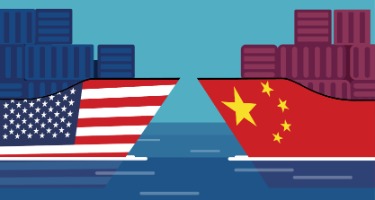Dramatic changes to compliance regulations in China have created growing uncertainty for multinationals already grappling with an increasingly volatile global market. That’s the bad news. The good news is that companies with strong leadership, cultures built on integrity, and effective global compliance programs may find that the changes help protect their business and improve returns on investments.
Certainly, compliance is just one part of a larger equation—economic volatility, foreign exchange, and potential changes in international trade relationships and tariffs included—but in our experience, the recent changes to the compliance landscape may buoy growth if supported by the right strategy.
Consider the potential for improving the risk-reward ratio for three of the most significant changes to the compliance landscape.
China's Crackdown on Domestic Corruption
China’s anti-corruption authorities are cracking down on bribery at an unprecedented level. China has long had laws that prohibit bribery, but until recently enforcement has been noticeably lax. The regulations not only reach conduct in China that would violate the anti-bribery provisions of the U.S. Foreign Corrupt Practices Act (FCPA), but will also reach conduct involving bribes offered or paid, and solicited or received, exclusively within the private sector. Additionally, China’s anti-bribery laws punish “unit crime,” which allows a broad range of companies, enterprises, and institutions—and the people who work for them, including corporate executives—to be held criminally liable.
China’s crackdown has ensnared a variety of offenders, including high- and low-ranking government officials, large and small companies, and employees at those companies. Perhaps most dramatically, those charged include a multinational pharmaceutical company headquartered outside China that was fined approximately RMB 3 billion (approximately $460 million), and whose employees faced prison sentences. Before that example, many observers felt that the only true anti-corruption enforcement risk large non-Chinese companies faced in China involved actions under the laws of their home countries, such as the FCPA.
The numbers underscore the story: between 2013 and 2015, prosecution of criminal bribery increased by nearly 50 percent. The total number of cases prosecuted increased by almost 20 percent and the total individuals involved increased by 60 percent. For commercial bribery, the Administration of Industry and Commerce is shifting its focus toward larger cases, with the average monetary amount involved increasing by nearly 90 percent per case and the average penalty increasing by approximately 65 percent per case.
China’s domestic crackdown has had a dramatic impact on global compliance programs, and while it increases potential sources of investigations and prosecutions, it can help programs be more effective. When we discuss compliance initiatives with executives in China today, we have captive audiences with a new appreciation for the importance of following all laws, especially “local” ones. When compliance becomes this personal, employees, agents, and vendors have a markedly increased desire to stay on the right side of the law, ultimately reducing corporate exposure and preserving corporate assets.
Likewise, in internal investigations for multinational companies, there is a strong appetite at all levels for full engagement and cooperation.
The U.S. Department of Justice's New Policy on Individual Accountability
In September 2015, the U.S. Department of Justice (DOJ) issued a memorandum announcing a new policy on holding individuals accountable when companies engage in crime. The memorandum is frequently referred to as the Yates Memorandum, after the deputy attorney general who issued it. The memorandum responds to a perceived failure by the DOJ to hold individuals accountable for crimes related to the U.S. financial crisis and to perceptions that corporate misconduct will not be deterred effectively by steep fines against companies when individuals are not also held accountable.
China's anti-bribery laws punish "unit crime," which allows a broad range of companies, enterprises, and institutions—and the people who work for them, including corporate executives—to be held criminally liable.
The DOJ has long-standing policies treating cooperation in investigations as a mitigating factor. Companies’ cooperation, including self-disclosure of corporate misconduct, generally guided the DOJ’s decisions on what, if any, violations to charge, who should be charged, and the penalties the DOJ will seek in a settlement or at sentencing.
The DOJ has now directed federal prosecutors not to give a company credit for cooperating unless the company provides the DOJ “all relevant facts relating to the individuals responsible for the misconduct.” According to the DOJ, before a company can receive any credit for cooperating in civil or criminal matters, it must provide all non-privileged information it possesses about individual wrongdoing, including who specifically engaged in misconduct and what they specifically did.
The significance of the Yates Memorandum to business in China parallels the significance of China’s domestic anti-corruption crackdown. Employees and agents of U.S. interests should be informed that any illegal activity in which they participate could very likely be brought to the attention of U.S. authorities. In addition, they should know there are no restrictions on how U.S. authorities handle that information, including sharing it with non-U.S. authorities. If companies want credit for cooperating in the DOJ investigations—and companies pursue such credit far more often than they do not—companies will have no choice but to explain in detail any misconduct they discover. Compliance is now as “personal” as any corporate concern.
Data Restrictions and Conflicts of Laws for Multinational Companies in China
The Chinese legislature and enforcement agencies have been placing an increasing level of attention on enhancing data protections, often resulting in new and stronger requirements for data access and localization within China. These rules, which focus on limiting both scope of access and exporting of data, can restrict the types of information a company can analyze for compliance purposes, as well as where and how that analysis can take place in order to avoid violating local laws. In some circumstances, these rules can even lead unprepared companies into situations where they are caught between an information disclosure requirement in their home country jurisdiction and access restrictions for that same information under Chinese law, legally prohibiting the production of documents that are also legally required to be produced.
These procedural challenges can have profound structural effects on compliance programs and investigations in China. Deputy Attorney General Yates, in her recent public remarks about the necessity for the Yates Memorandum and the need for a new approach to FCPA enforcement globally, acknowledged that part of the basis for the U.S. government’s updated strategy arose because there are “challenges that can impede our ability to identify the responsible parties and to bring them to justice,” which include “massive numbers of electronic document and, for corporations that operate worldwide, restrictive foreign data privacy laws.”
Following the DOJ’s new direction, multinational companies must also take these new realities into consideration and carefully implement customized investigation procedures, information governance, and data screening in order to be fully prepared to navigate China’s truly unique data compliance landscape.
Already, the short-term impact of these changes is coming into focus. Companies that can seize sustained strategic value, however, will take a long-term view of how to turn this shifting legal landscape to their competitive advantage.























